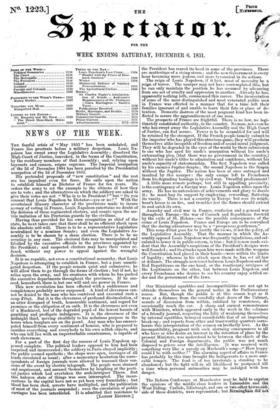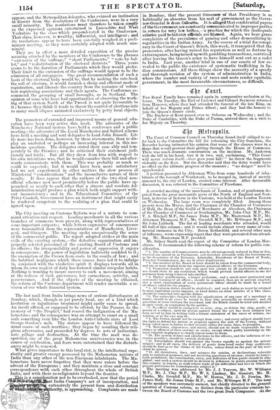The Reform Conference at Manchester may be held to express
the op-miens of the middle.class leaders in Lancashire and the- West Riding. Carlisle, Edinburgh, and one or two other towns out-, side of these districts, were represented; but Birminghain did not
appear, and the Metropolitan delegates, who evinced an inclination to dissent from the resolutions of the Conference, were in a very small minority. The resolutions must therefore be taken simi■ly as the expressed opinions entertained in Lancashire and Wiest Yorkshire by the class vrhich preponderated in the 'Conference. That class, however, is wealthy, influential, and intelligent ; and its resolutions appear to have been carefully weighed at a preli- minary meeting, as they were certainly adopted with much una- nimity. They are in effect a more detailed exposition of the precise meaning attached by the members of the Conference to the phrases " extension of the suffrage," " short Parliaments," " vote by bal- lot," and " redistribution of the electoral districts." Three years seems to be the duration of Parliaments which they would prefer. Their limit to the extension of the suffrage would appear to be the admission of all ratepayers. One great recommendation of such a basis of the electoral body would be, that by making the rate-book the roll of electors, it would furnish a cheap and efficient mode of registration, and liberate the country from the nuisance of volun- teer registering associations and their agents. The Conference re- commend the grouping of small boroughs, as in Scotland. The opinion of some who have had opportunities of observing the work- ing of that system North of the Tweed is not quite favourable to it ; because they think it tends to throw the control of elections into so many small cliques animated exclusively by petty local objects.



























